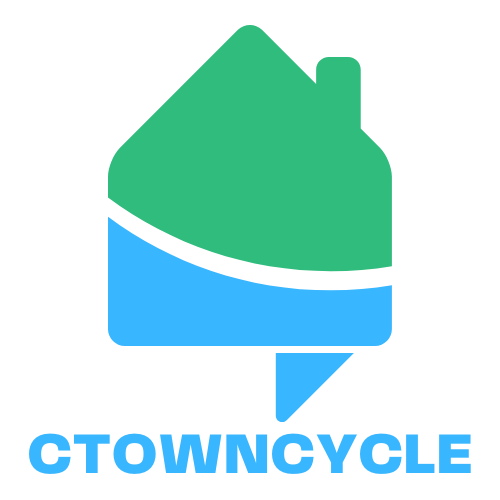Table of Contents
ToggleHouse hacking isn’t just a trendy term; it’s a savvy strategy that can turn your home into a money-making machine. Imagine living in your dream space while someone else helps pay the mortgage. Sounds like a plot twist straight out of a financial fairy tale, right?
In a world where rent prices feel like they’re auditioning for a horror movie, house hacking offers a clever escape route. By renting out a room or a separate unit, homeowners can significantly boost their income while keeping their living expenses low. It’s like having your cake and eating it too—except this cake comes with extra cash on the side. Dive into the world of house hacking and discover how this innovative approach can transform not just your living situation, but your financial future.
Understanding House Hacking
House hacking offers a creative way to achieve homeownership while generating rental income. This method supports individuals in managing living costs and boosting financial stability.
What Is House Hacking?
House hacking involves renting a portion of a property to cover mortgage payments and living expenses. Homeowners might choose to rent out a room, a basement apartment, or even a separate unit. This strategy not only reduces personal expenses but also provides an opportunity to build equity over time. Many investors appreciate how house hacking can lead to long-term financial benefits, especially in markets with high rental demand.
Types of House Hacking Strategies
Various strategies exist for effective house hacking. The most common approach is renting out a room to tenants, which allows homeowners to share their living space and generate income. Another strategy involves renting out a basement or attic as an independent living area. Some individuals choose to purchase multi-family properties, occupying one unit while renting out the others. Furthermore, short-term rentals through platforms like Airbnb offer flexibility and potentially higher returns. Each strategy requires consideration of local regulations and property management skills.
Financial Benefits of House Hacking

House hacking provides significant financial advantages, making it a popular strategy among homeowners. Individuals can enjoy increased cash flow and decreased living expenses through thoughtful rental decisions.
Income Generation
Renting out a portion of the property creates a consistent revenue stream. Homeowners can charge monthly rents that often cover or even exceed mortgage payments, resulting in positive cash flow. Renting out a room typically yields between $600 and $1,200 monthly, depending on location and amenities. Short-term rentals through platforms like Airbnb can generate even higher income, with potential earnings reaching $3,000 monthly in sought-after areas. Successful house hacking can produce enough income to lower dependency on regular job salaries, ultimately enhancing financial freedom.
Expense Reduction
Living in a house with rental units lowers overall living costs. Mortgage payments diminish when rental income supports the homeowner’s expenses. Without rental income, a homeowner may struggle to cover monthly bills, but house hackers reduce this burden significantly. Home insurance costs may remain stable, given the same property size. Sharing utilities and maintenance with tenants further alleviates financial pressure. Homeowners can experience monthly living expenses cut by 30% to 50%, leading to improved savings and investment potential in the long term.
Analyzing the Profitability of House Hacking
House hacking offers various financial advantages, particularly when evaluating profitability. Careful analysis of metrics and returns ensures informed decision-making in this strategy.
Key Metrics to Consider
Evaluate occupancy rates, cash flow, and expenses. Occupancy rates determine rental income reliability, affecting profitability. Cash flow represents the difference between income generated and costs incurred. Understanding expenses involves knowing mortgage payments, property taxes, insurance, and maintenance costs. Calculate net income by subtracting total expenses from gross rental income. For instance, consistently high occupancy rates can maximize profits, while lower expenses lead to increased cash flow. Focus on assessing these metrics to gauge the overall success of house hacking ventures.
Return on Investment (ROI)
Calculating ROI is crucial when assessing house hacking profitability. ROI measures the efficiency of investment based on rental income versus initial costs. To calculate, divide net profit by total investment, then multiply by 100 for a percentage. A positive ROI indicates favorable returns, vital for financial growth. Investors typically look for ROIs exceeding 10% in rental properties. For example, if annual rental income is $24,000, and total expenses amount to $18,000, the net profit is $6,000. In this scenario, a total investment of $60,000 yields a 10% ROI. Higher returns signal successful house hacking strategies, making tracking ROI essential.
Potential Risks and Challenges
House hacking offers great potential but also comes with significant risks and challenges. Understanding these aspects is crucial for anyone considering this strategy.
Market Risks
Market fluctuations can impact rental income. Changes in the local rental market can lead to decreased demand, affecting occupancy rates. For instance, if vacancy rates rise above 10%, rental income may not cover mortgage costs. Economic downturns also cause reduced tenant purchasing power, leading to price wars among landlords. This competition can compress profit margins. Additionally, fluctuations in property values can influence resale potential. Homeowners should also be aware of changes in local regulations that could affect rental operations. Staying informed can mitigate some of these risks.
Property Management Challenges
Managing property often requires time and effort. Effective tenant screening is essential for finding reliable renters. If screening processes fail, it could result in late payments or property damage. Handling tenant communications and maintenance requests can consume a significant amount of energy and resources. For instance, landlords frequently receive calls about minor repairs that can disrupt their daily lives. Furthermore, understanding landlord-tenant laws is critical to ensure compliance with local regulations. Noncompliance can lead to legal disputes, resulting in unexpected expenses. Homeowners must remain proactive to handle these management challenges effectively.
Case Studies of Successful House Hacking
House hacking examples illustrate how individuals optimize their properties for financial gain. These cases highlight practical applications and the potential for significant returns.
Example 1: Multi-Family Homes
Multi-family homes serve as a robust option for house hacking. An investor bought a two-unit property for $400,000, with a mortgage payment of $2,000 monthly. Renting out one unit for $1,500 covers most of the mortgage while allowing the owner to live in the other unit virtually rent-free. In this scenario, occupancy rates remain high, especially in urban areas with strong rental demand. Such properties offer long-term equity growth and consistent cash flow, essential factors for financial success.
Example 2: Renting Out Spare Rooms
Renting out spare rooms offers another effective house hacking strategy. Homeowners can create separate rental listings for individual rooms, attracting short-term or long-term tenants. For instance, a homeowner with three spare rooms charges $800 each, resulting in a total monthly income of $2,400. This income significantly offsets mortgage payments and utility costs. Additionally, increased cash flow fosters financial freedom, allowing for savings and investments. Local regulations must also be considered to ensure compliance, but this method often provides quick financial benefits.
House hacking stands out as a powerful strategy for homeowners seeking to enhance their financial situation. By leveraging rental income from their properties, individuals can significantly lower living expenses and build equity over time. The various approaches to house hacking offer flexibility and adaptability, catering to different lifestyles and investment goals.
While challenges exist, the potential for positive cash flow and increased financial freedom makes house hacking an attractive option. By carefully evaluating metrics like occupancy rates and ROI, homeowners can maximize their investment and navigate the complexities of property management. With the right mindset and proactive management, house hacking can lead to substantial financial rewards and a more secure future.




